The journey toward sustainable weight loss and sustained energy doesn’t require animal products. A well-planned Vegan Diet rich in protein can be your most powerful ally in achieving your health goals while maintaining peak energy levels throughout the day. As someone who has guided countless individuals through their plant-based transformation, I’ve witnessed firsthand how strategic protein intake can revolutionize both your body composition and vitality.
The misconception that vegans struggle to get adequate protein is outdated and scientifically unfounded. Modern nutritional research consistently demonstrates that plant-based proteins, when consumed thoughtfully, provide all essential amino acids necessary for muscle preservation, satiety, and metabolic health—all crucial factors for sustainable weight loss.
What Vegan Foods Are High in Protein?
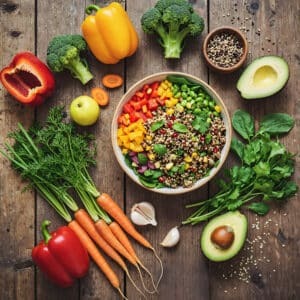
Plant-based protein sources are more abundant and diverse than most people realize. Lentils deliver approximately 18 grams of protein per cooked cup, while chickpeas provide around 15 grams. Tofu and tempeh are exceptional protein powerhouses, offering 20 and 31 grams per cup respectively. Quinoa stands out as a complete protein grain with 8 grams per cup, containing all nine essential amino acids.
Edamame, seitan, and various beans—black, kidney, and pinto—each contribute substantial protein while adding fiber that enhances satiety. Hemp seeds, chia seeds, and pumpkin seeds are compact protein sources perfect for snacking or adding to smoothies. Nutritional yeast, beyond its cheesy flavor, provides about 8 grams of protein per quarter cup along with vitamin B12.
Green vegetables shouldn’t be overlooked either. Spirulina contains an impressive 4 grams of protein per tablespoon, while spinach, broccoli, and Brussels sprouts contribute meaningful amounts when consumed in larger portions. Plant-based protein powders derived from pea, rice, or hemp can conveniently supplement your daily intake.
Also Check:- Top 7 Vegan Friendly Countries
Can Vegan Protein Help with Weight Loss?
What is the Best Protein for Losing Belly Fat?
No single protein specifically targets belly fat, but high-quality plant proteins create conditions favorable for overall fat loss, including abdominal fat. Legumes like lentils and black beans combine protein with resistant starch and fiber, slowing digestion and stabilizing blood sugar—both essential for preventing fat storage around the midsection.
The thermogenic effect of protein means your body burns more calories digesting protein compared to fats or carbohydrates. Plant proteins typically come packaged with fiber, creating a synergistic effect that promotes fullness and reduces overall calorie consumption without conscious restriction.
Which Protein is Best for Fat Loss?
For fat loss on a vegan diet, prioritize whole food protein sources over isolated supplements whenever possible. Tempeh and tofu provide lean protein with minimal processing, while legumes deliver protein alongside complex carbohydrates that sustain energy during workouts. Seitan offers one of the highest protein concentrations among plant foods, making it ideal for those requiring substantial protein intake.
Combining incomplete proteins throughout the day ensures you receive all essential amino acids. Pairing rice with beans, hummus with whole grain bread, or peanut butter with oats creates complete amino acid profiles that support muscle maintenance during calorie deficits.
Will I Lose Fat If I Eat a High-Protein Diet?
A high-protein vegan diet can facilitate fat loss through multiple mechanisms. Protein increases satiety hormones while decreasing hunger hormones, naturally reducing calorie intake. It preserves lean muscle mass during weight loss, which is critical because muscle tissue burns more calories at rest than fat tissue.
However, protein alone doesn’t guarantee fat loss—total calorie balance remains fundamental. A high-protein approach works best when combined with a moderate calorie deficit, adequate sleep, stress management, and regular physical activity.
Why Am I Gaining Weight When I'm Eating Less?
Weight gain despite reduced eating can result from several factors. Metabolic adaptation occurs when prolonged calorie restriction slows your metabolism as your body attempts to conserve energy. Consuming too few calories can trigger this protective mechanism, ironically making weight loss harder.
Inadequate protein intake during restriction can accelerate muscle loss, further reducing metabolic rate. Hidden calories in seemingly healthy foods like nut butters, oils, and dried fruits can accumulate quickly. Water retention from increased sodium, hormonal fluctuations, or inflammation can mask fat loss on the scale. Stress and poor sleep elevate cortisol, promoting fat storage particularly around the abdomen.
Why Are Some Vegans Not Skinny?
Veganism doesn’t automatically equate to weight loss. Many processed vegan foods are calorie-dense and nutrient-poor—vegan cookies, chips, and frozen meals can contain as many calories as their conventional counterparts. Some vegans overcompensate with large portions of healthy foods like nuts, avocados, and oils, which while nutritious, are extremely calorie-dense.
Carbohydrate-heavy vegan diets without adequate protein can trigger frequent hunger and overeating. Additionally, some individuals transition to veganism without addressing underlying eating habits, stress eating, or sedentary lifestyles that contributed to previous weight gain.
How Much Weight Can I Lose in 2 Weeks on a Plant-Based Diet?
Healthy, sustainable weight loss typically ranges from 1-2 pounds per week. In two weeks on a well-structured plant-based diet, you might lose 2-4 pounds of actual fat, though initial losses could appear higher due to reduced water retention and glycogen depletion.
Rapid weight loss exceeding these rates often involves muscle loss and water weight, which return quickly once normal eating resumes. Focus on establishing sustainable habits rather than pursuing dramatic short-term results that rarely last.
What is the Best Diet for a Vegan to Lose Weight?
The optimal vegan weight loss diet emphasizes whole, minimally processed foods with abundant vegetables, legumes, whole grains, fruits, nuts, and seeds in appropriate portions. Structure meals around protein-rich legumes and tofu, fill half your plate with non-starchy vegetables, include whole grains in moderate portions, and add small amounts of healthy fats.
Meal timing matters less than consistency and total intake, though many find success with three balanced meals and one planned snack. Avoid liquid calories from juices and sweetened beverages, limit processed vegan alternatives, and practice mindful eating without distractions.
How Do Vegans Get B12?
Vitamin B12 doesn’t naturally occur in plant foods because it’s produced by bacteria. Vegans must obtain B12 through fortified foods or supplements. Fortified plant milks, nutritional yeast, breakfast cereals, and meat alternatives often contain added B12.
Supplementation remains the most reliable method. Most vegans benefit from a daily supplement providing 250-500 mcg or a weekly dose of 2,000 mcg. Regular blood testing ensures adequate levels, as B12 deficiency develops slowly but can cause irreversible neurological damage.
Do Vegans Lose Weight Faster?
Research suggests vegans often lose weight more effectively than those following other diets, primarily due to higher fiber intake and lower calorie density of plant foods. However, individual results vary based on food choices, portion control, and overall lifestyle factors.
The key advantage lies not in veganism itself but in the nutritional quality of a well-planned plant-based diet naturally rich in fiber, water, and nutrients while lower in calories compared to typical Western diets.
How Much B12 Should a Vegan Take?
The recommended daily intake for adults is 2.4 mcg, but absorption efficiency decreases with higher doses. A daily supplement of 250-500 mcg or a weekly supplement of 2,000 mcg provides adequate B12 for most vegans. Those over 50 or with absorption issues may require higher doses under medical supervision.
How Do Vegans Get Protein?
Vegans obtain protein from diverse sources including legumes, tofu, tempeh, seitan, whole grains, nuts, seeds, and vegetables. Contrary to outdated beliefs, you don’t need to combine specific proteins at each meal—consuming various protein sources throughout the day naturally provides all essential amino acids.
Most vegans easily meet protein requirements, which range from 0.8 to 1.2 grams per kilogram of body weight, with higher needs for athletes and those building muscle.
How to Lose 5kg in 7 Days Diet Plan Vegetarian?
Losing 5 kilograms (11 pounds) in seven days isn’t physiologically possible or healthy as fat loss. Such rapid weight loss would require an extreme calorie deficit causing muscle loss, nutritional deficiencies, and metabolic damage. What appears as dramatic weight loss in one week is predominantly water weight, which returns immediately once normal eating resumes.
Sustainable fat loss occurs at 0.5-1 kg per week. A realistic vegetarian approach focuses on creating a moderate calorie deficit through whole foods, adequate protein, regular exercise, proper hydration, and sufficient sleep.
How Did Alia Bhatt Lose 16 kgs?
While celebrity transformations generate interest, they often involve personal trainers, nutritionists, and circumstances unavailable to most people. Sustainable weight loss comes from consistent habits rather than extreme measures. Focus on your unique journey, body, and circumstances rather than comparing yourself to others whose full story you don’t know.
Can I Lose 5 kg in 40 Days?
Losing 5 kilograms in 40 days is achievable and healthy, averaging about 0.9 kg per week. This requires a daily calorie deficit of approximately 500-700 calories through reduced intake and increased activity. A structured plant-based meal plan with adequate protein, regular exercise including both cardio and strength training, consistent meal timing, adequate hydration, and quality sleep can facilitate this goal.
Can I Lose Weight Without Exercise?
Weight loss is possible through dietary changes alone since weight loss fundamentally depends on consuming fewer calories than you burn. However, exercise provides numerous benefits beyond calorie burning, including preserved muscle mass, improved metabolism, enhanced mood and energy, better cardiovascular health, and improved insulin sensitivity.
Combining dietary changes with regular physical activity produces superior long-term results and better overall health outcomes.
What is the Best Indian Diet for Weight Loss?
Traditional Indian cuisine offers excellent options for plant-based weight loss. Emphasize dal (lentil) preparations, vegetable curries with minimal oil, whole grain rotis instead of refined breads, brown rice or millets, homemade paneer (for lacto-vegetarians) or tofu, seasonal vegetables, and spices like turmeric, ginger, and cumin that support metabolism.
Minimize deep-fried items, excessive oil in cooking, white rice and refined flours, sugary sweets, and high-calorie gravies made with cream or excessive nuts.
What is the Best Time to Eat for Weight Loss?
Meal timing’s importance is often overstated. Total daily calorie intake and food quality matter more than specific eating windows. However, some strategies can help: eating breakfast within an hour of waking jumpstarts metabolism, consuming larger meals earlier in the day when activity levels are higher, stopping eating 2-3 hours before bedtime for better digestion, and maintaining consistent meal times to regulate hunger hormones.
Some individuals benefit from intermittent fasting, but it’s not necessary for weight loss and doesn’t suit everyone.
How to Get Enough Protein as a Vegan for Weight Loss?
Meeting protein needs on a vegan weight loss diet requires intentional planning but is entirely achievable. Include protein at every meal through legumes, tofu, or tempeh, snack on protein-rich options like roasted chickpeas or edamame, add protein powder to smoothies, incorporate quinoa and other higher-protein grains, and use nutritional yeast as a seasoning.
Aim for 1.6-2.2 grams of protein per kilogram of body weight when losing weight to preserve muscle mass. Distribute protein evenly throughout the day for optimal muscle protein synthesis.
What Are the 5 Most Important Rules of a Vegan Diet?
First, ensure adequate B12 through supplementation or fortified foods. Second, consume diverse protein sources daily to meet amino acid requirements. Third, include omega-3 sources like ground flaxseeds, chia seeds, or walnuts for brain and heart health. Fourth, eat iron-rich foods with vitamin C to enhance absorption. Fifth, plan meals around whole foods rather than processed vegan alternatives.
Is Tofu a Complete Protein?
Yes, tofu is one of the few plant foods considered a complete protein, containing all nine essential amino acids in adequate proportions. This makes it exceptionally valuable for vegans, particularly those focused on weight loss or muscle building. Its versatility, mild flavor, and ability to absorb seasonings make it easy to incorporate into diverse dishes.
What Are High Energy Dairy-Free Foods?
High-energy plant-based foods include nuts and nut butters providing concentrated calories and healthy fats, seeds like sunflower and pumpkin, dried fruits offering quick natural sugars, avocados rich in monounsaturated fats, coconut products, whole grains like oats and quinoa, and legumes combining protein with complex carbohydrates for sustained energy release.
What Are Some Quick High-Protein Meals?
Quick vegan protein meals include tofu scramble with vegetables, lentil soup with whole grain bread, chickpea salad sandwiches, smoothies with protein powder and nut butter, stir-fried tempeh with vegetables and brown rice, and black bean tacos with avocado. Meal prepping cooked legumes and marinated tofu on weekends simplifies weeknight dinners.
Ready-made options like seasoned baked tofu, canned lentil soups, and frozen edamame provide convenience when time is limited.
A protein-rich vegan diet offers a sustainable, healthful path to weight loss and increased energy. By emphasizing whole foods, adequate protein, and balanced nutrition, you can achieve your goals while supporting long-term health, environmental sustainability, and ethical values. The key lies not in perfection but in consistent, informed choices that nourish both body and mind.




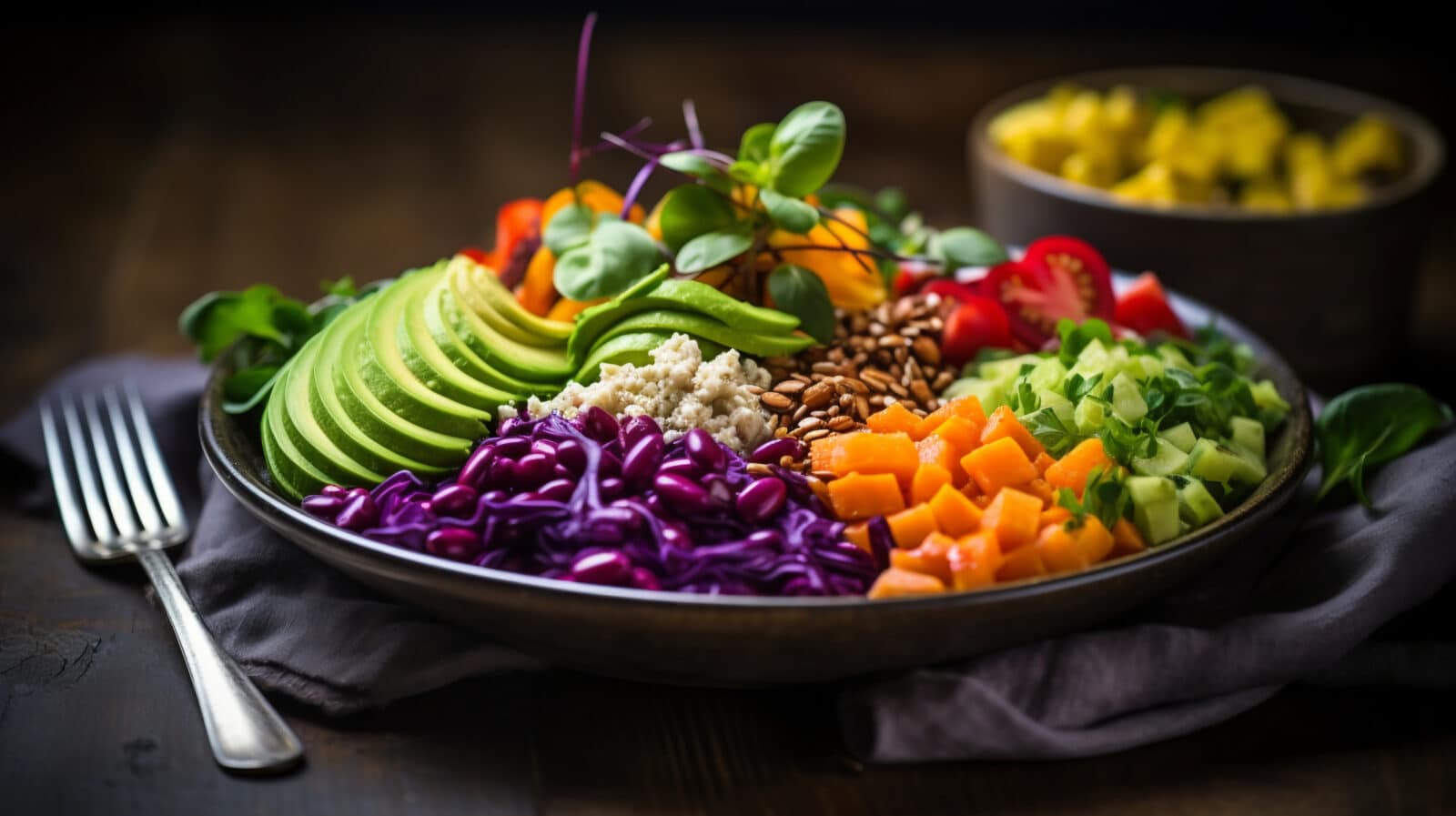
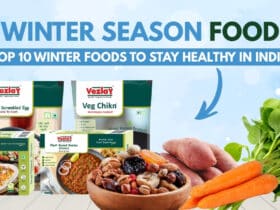

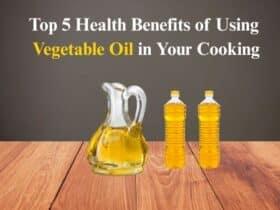
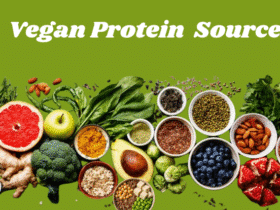
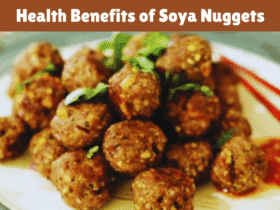
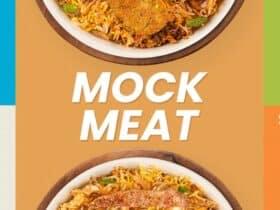

Leave a Reply